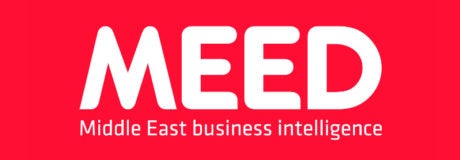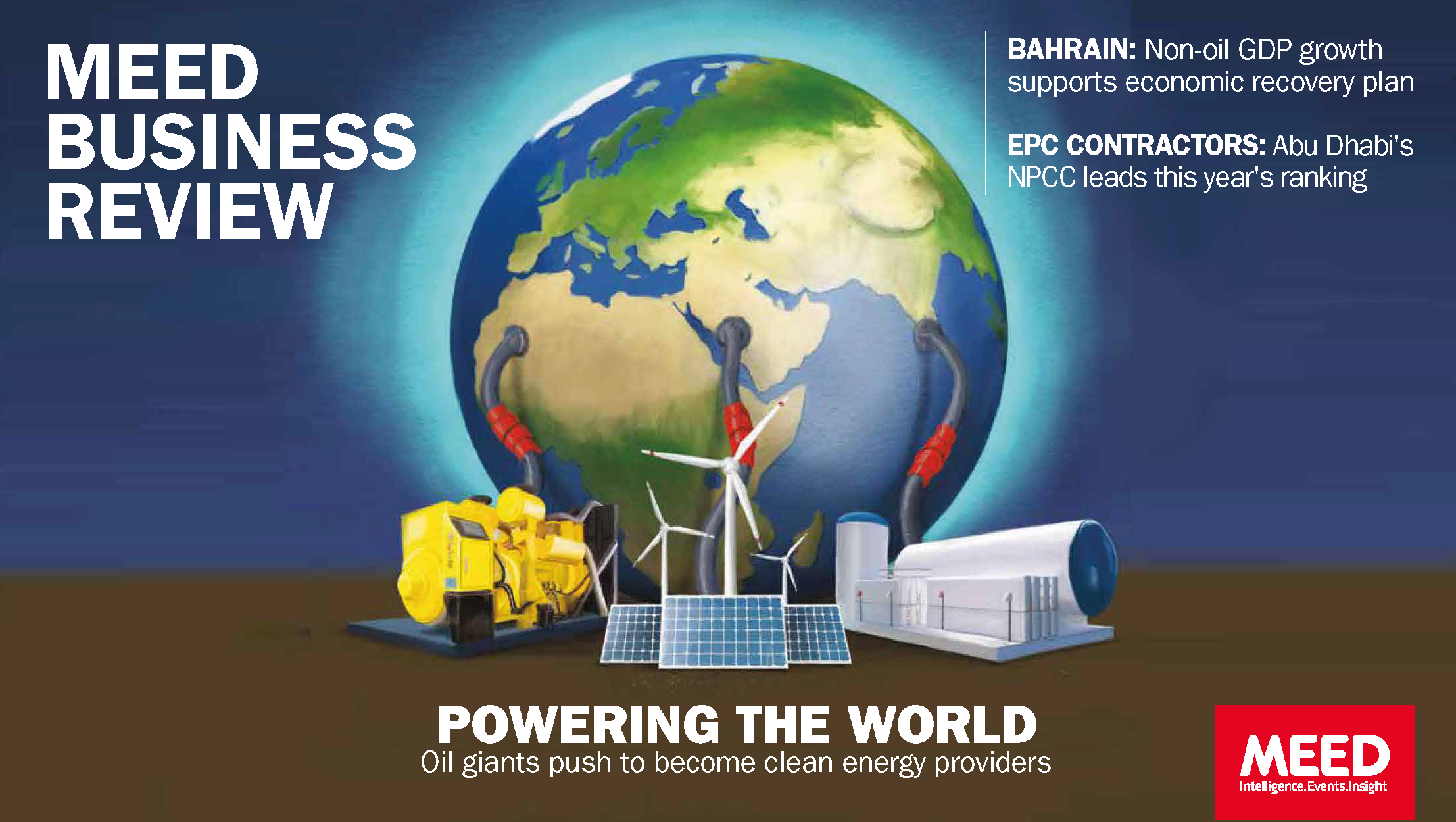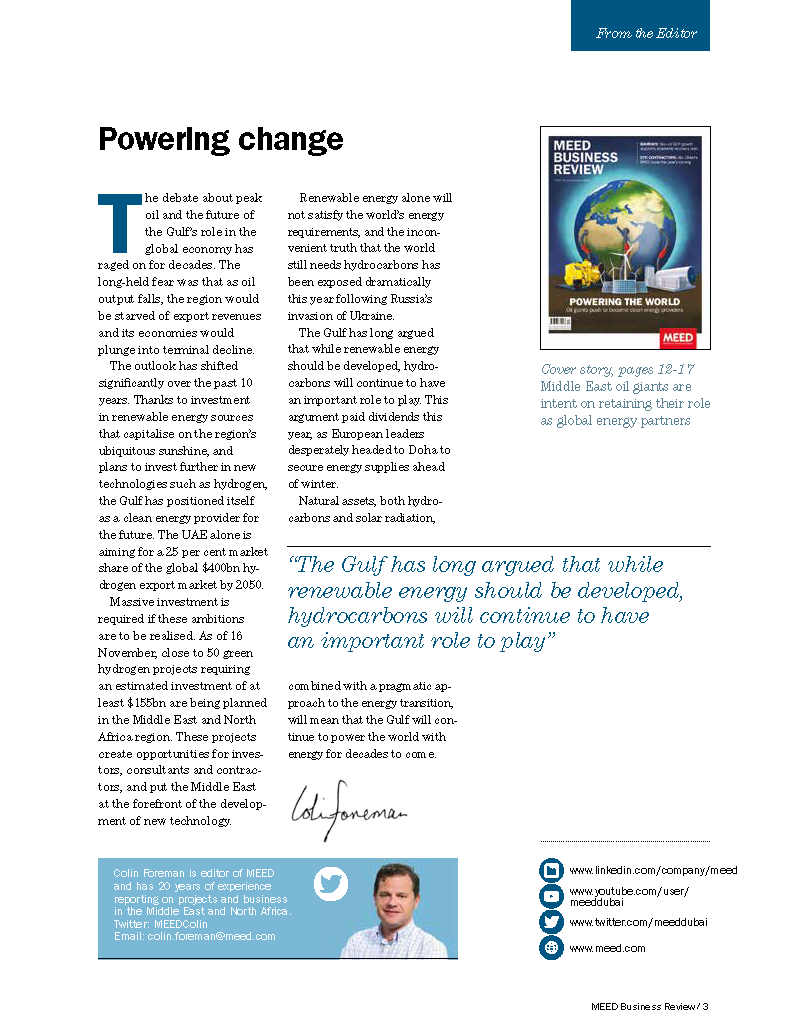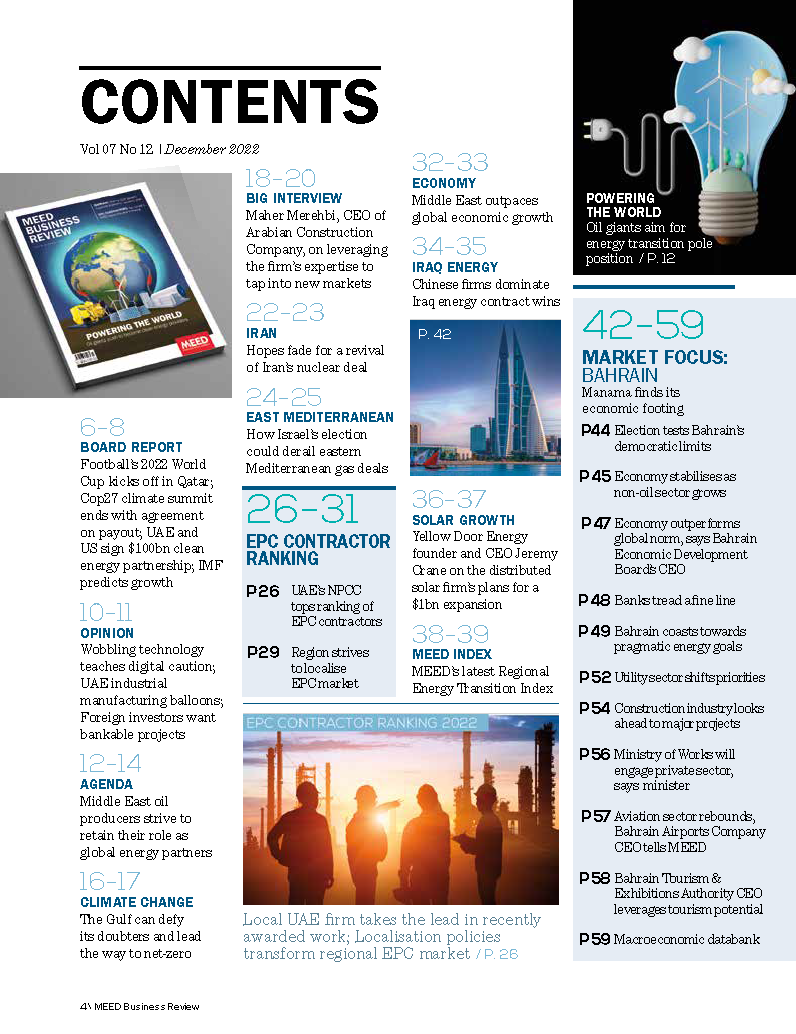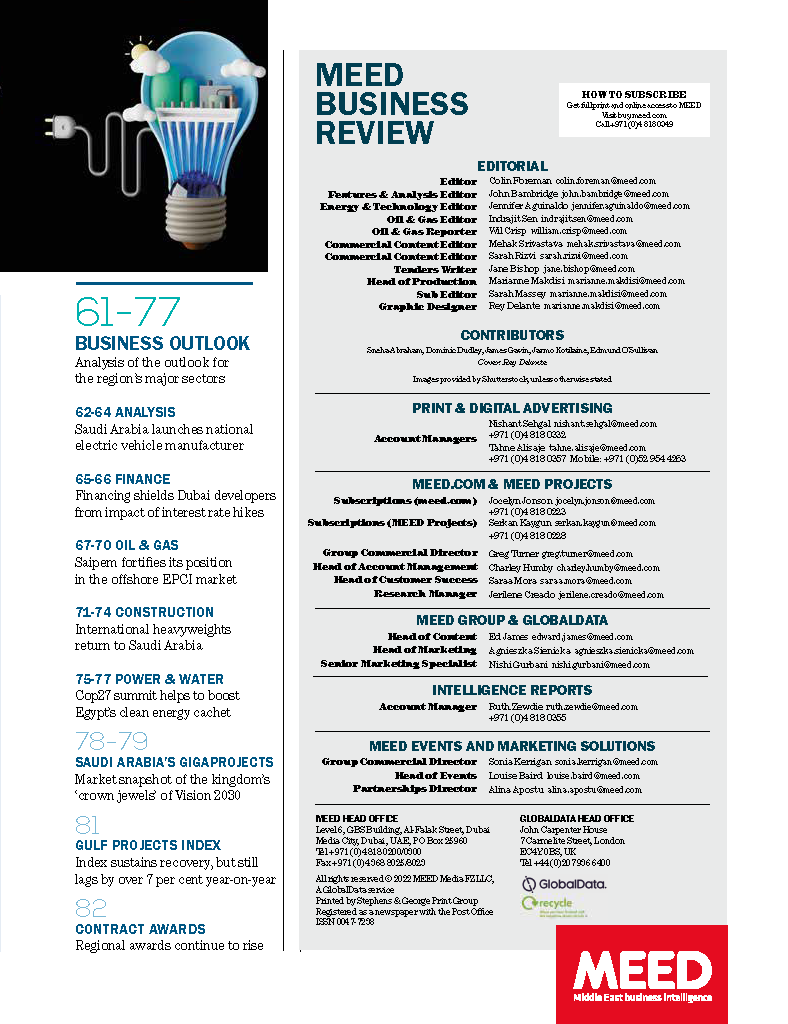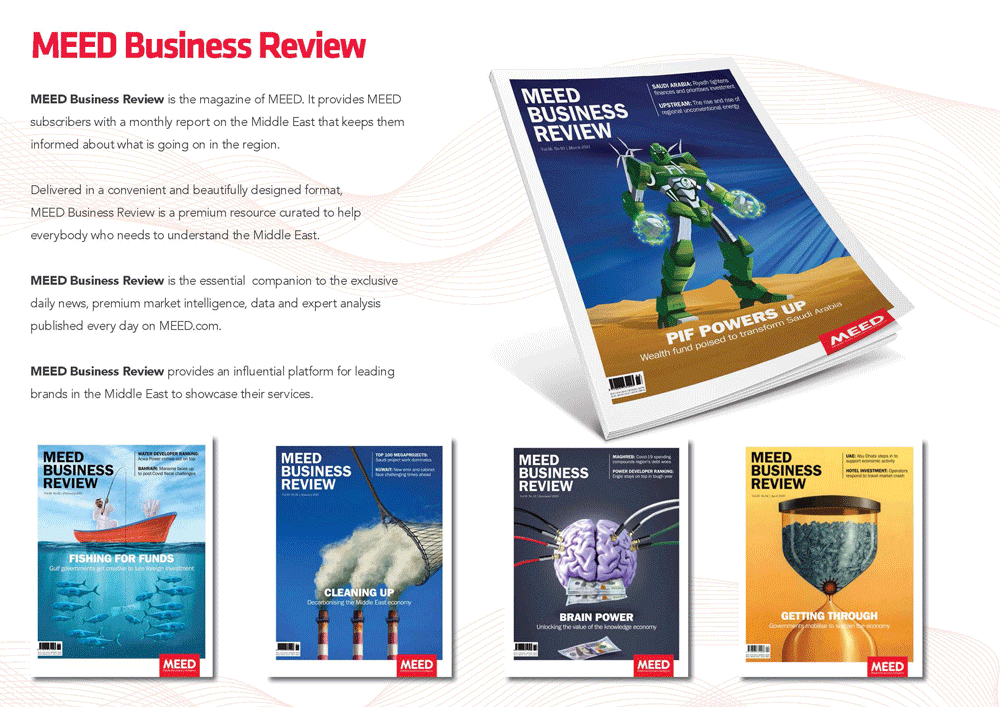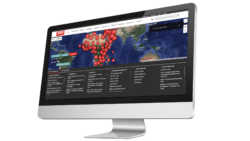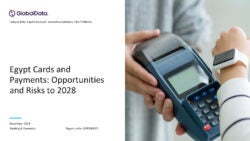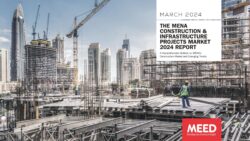Description
About this month’s cover stories:
The spectre of retreating Russian oil and gas supply while the global energy crisis unfolds has turned the spotlight on the largest oil and gas exporting countries in the Middle East.
The region’s response to the ongoing crisis is unequivocal: Saudi Arabia is willing to pump more oil if the situation worsens and the UAE has said it will continue supplying oil and gas responsibly as long as the world needs it.
At the Abu Dhabi International Petroleum Exhibition & Conference (Adipec) this year, the UAE climate envoy Sultan al-Jaber said the world needs maximum energy and minimum emissions.
“The world requires all the solutions it can get to respond to rising energy demand, which entails oil and gas, solar, wind, nuclear and hydrogen, plus the clean energies yet to be discovered, commercialised and deployed,” said the government official, who heads both Abu Dhabi National Oil Company (Adnoc) and Abu Dhabi Clean Energy Company (Masdar).
Amid ongoing energy chaos that is unsettling entire continents, economies and energy policies, MEED’s December 2022 edition of MEED Business Review explores Middle East oil producers’ determination to retain their role as global energy partners.
The Gulf, our report concludes, will continue to power the world for decades to come, thanks to its natural assets, both hydrocarbons and solar radiation, combined with a pragmatic approach to the energy transition.
December’s 18-page Market Focus on Bahrain, meanwhile, finds much to be optimistic about in the country’s economic landscape, with investment and development initiatives targeting most sectors.
This month, MEED also presents its 2022 EPC contractor ranking.
Abu Dhabi’s NPCC tops the ranking, taking the lead in recently awarded work in a clear sign that localisation policies are having an impact.
We hope you enjoy the December 2022 edition of MEED Business Review.
Table of contents:
- UAE Market Focus: The UAE sidesteps the global economic crunch
- Agenda: The region will be thrust onto the global stage on 20 November when football’s 2022 World Cup kicks off in Qatar
- Business Outlook: Analysis of the outlook for the region’s major sectors
- Asian Games: Hosting the 2029 Asian Winter Games will allow Saudi Arabia to challenge perceptions
- Board Report: Opec+ to cut production from November; World leaders set to gather in Egypt for climate change summit; Riyadh boosts public spending
- Project finance and PPP report: Project finance activity tests regional capacity; PPP market cools, but stays strong
- Energy Transition: Balancing economics and sustainability
- Gulf Projects Index: Gas and rail schemes shift the index back to positive growth
- Egypt project pipeline: Egypt has about $519bn of projects planned or under way
- Contract awards: UAE marks biggest month in 2022
From the Editor:
The debate about peak oil and the future of the Gulf’s role in the global economy has raged on for decades. The long-held fear was that as oil output falls, the region would be starved of export revenues and its economies would plunge into terminal decline.
The outlook has shifted signifi cantly over the past 10 years. Thanks to investment in renewable energy sources that capitalise on the region’s ubiquitous sunshine, and plans to invest further in new technologies such as hydrogen, the Gulf has positioned itself as a clean energy provider for the future. The UAE alone is aiming for a 25 percent market share of the global $400bn hydrogen export market by 2050.
Massive investment is required if these ambitions are to be realised. As of 16 November, close to 50 green hydrogen projects requiring an estimated investment of at least $155bn are being planned in the Middle East and North Africa region. These projects create opportunities for investors, consultants and contractors, and put the Middle East at the forefront of the development of new technology.
Renewable energy alone will not satisfy the world’s energy requirements, and the inconvenient truth that the world still needs hydrocarbons has been exposed dramatically this year following Russia’s invasion of Ukraine.
The Gulf has long argued that while renewable energy should be developed, hydrocarbons will continue to have an important role to play. This argument paid dividends this year, as European leaders desperately headed to Doha to secure energy supplies ahead of winter. Natural assets, both hydrocarbons and solar radiation, combined with a pragmatic approach to the energy transition, will mean that the Gulf will continue to power the world with energy for decades to come.
Read more about this in our cover story of the December 2022 issue.
Colin Foreman is editor of MEED and has 20 years of experience reporting on projects and business in the Middle East and North Africa.
Editorial:
Editor – Colin Foreman
Features & Analysis Editor – John Bambridge
Energy & Technology Editor – Jennifer Aguinaldo
Oil & Gas Editor – Indrajit Sen
Oil & Gas Reporter – Wil Crisp
Commercial Content Editor – Mehak Srivastava
Commercial Content Editor – Sarah Rizvi
Tenders Writer – Jane Bishop
Head of Production – Marianne Makdisi
Sub Editor – Sneha Abraham
Graphic Designer – Rey Delante
